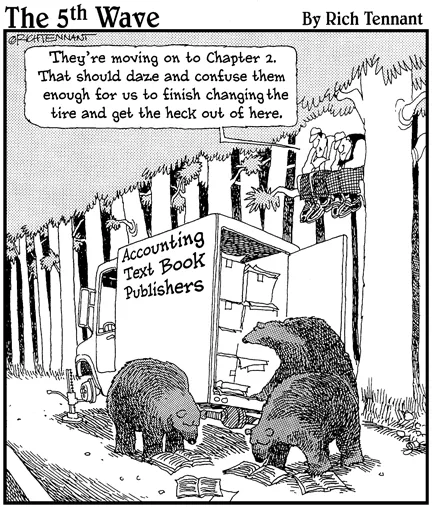Chapter 1
Introducing IFRS
In This Chapter
Seeing how standards are set, and amended
Rolling out IFRS globally
Presenting IFRS financial statements
Many organisations use International Financial Reporting Standards (IFRS) and International Accounting Standards (IAS) in preparing their general purpose financial statements – the year-/period-end statements prepared for users: shareholders and external stakeholders like employees, tax authorities, banks and financiers. The IFRS and IAS tell accountants and other preparers of financial statements how to account for transactions and events, and what to disclose, within the accounts.
Over recent years, the IFRS have become more and more prevalent throughout the world, but a frequently asked question is why? Well, many countries like the idea of being able to produce financial information comparable to that of other companies that report under IFRS – for example, comparing against other companies in the same industry but in a different country. Think from a potential investor’s point of view: if you’re planning to pump money into a company, you need to see clear and comparable financial information. And because IFRS is now gathering pace all around the world, you can compare financial information far more easily now than, say, 20 years ago.
In this chapter, I move beyond telling you what standards are to helping you understand what they do. To start, I explain how the standards are created and amended, and then I take a look at the scope of IFRS worldwide. Finally, I introduce you to the important financial statements that you must present to conform with IFRS: the statement of financial position, statement of comprehensive income and the statement of changes in equity. By the end of this chapter, you’ve a good grounding in IFRS.
Creating and Amending the Standards
The standards don’t create themselves – someone has to produce them – and this unenviable job belongs to the International Accounting Standards Board (IASB). The Board began work in 2001 and took over from the International Accounting Standards Committee (IASC), which was originally set up in 1973. The IASB doesn’t have the authority to impose its standards on any country – this decision is left to the various countries themselves. A major breakthrough came in 2002 when the European Union (EU) adopted legislation that requires listed companies in Europe to apply IFRS in their consolidated financial statements and this applied to more than 7,000 companies in 28 countries.
When the IASB sets the accounting standards, it has a clear objective in mind: that companies reporting under IFRS and IAS produce general purpose financial statements that are of a high quality, clear and transparent nature and allow the financial statements to be comparable. The objective is that the user (the shareholder or the external stakeholder) can make rational decisions about the company based on the information contained in the financial statements. The IASB also promotes the IFRS and IAS globally with the aim that eventually all countries report under the standards. The Board works with other national standard-setters (for example, the US Financial Accounting Standards Board) to converge national accounting standards to IFRS.
The following sections take you through the IASB’s Conceptual Framework, and how it sets and amends standards.
Understanding the Framework
When the IASB develops or changes an accounting standard, it does so with reference to their Conceptual Framework for Financial Reporting. The Conceptual Framework considers the theoretical and conceptual issues that surround financial reporting and its objective is to form a coherent and consistent basis upon which accounting standards are developed.



